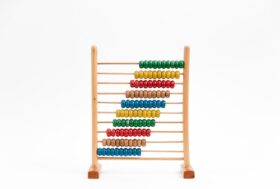Decolonising the curriculum: a case study


This case study was written by Michelle Mangal, The Black Curriculum.
As you read this case study, reflect on how some of the principles might be applied to your own school’s curriculum.
‘Decolonisation can be conceptualised as a mental process of changing beliefs and thought processes, rejecting a dominant belief of how the world functions and replacing it with an alternative.’ (Deschner and Hurst 2018)
Classrooms across the UK are full of students from different countries, races, and cultures. Many curriculums do not reflect this rich diversityThe recognition of individual differences in terms of race,, instead focusing on Western examples of history, of writing, of art, maintaining an outmoded Eurocentric curriculum. We need a fair and full display of history reflected in our teachings that mirrors the racial and cultural composition of modern Britain. When they fail to do this, curricula fall short of engaging and inspiring the diverse student bodies they aim to educate. Decolonisation within education can empower all students, giving minority students a greater sense of belonging and engagement and other students a fuller, richer awareness of society, history and help understand and accept differences.
A useful starting point may be at the beginning of the academic year or in the summer term when planning ahead. It’s up to us as educators to look at where we can decolonise our curricula. For example, an English unit could cover black British authors or books with black characters. In History, we could teach students about the cultural and scientific contributions of African civilizations such as Benin or Mali or focus on the places in the global south historically rich in medical knowledge, architecture or art.
The degree to which teachers can make decisions about curriculum varies. Much of this will depend on how much freedom there is to change or adapt the curriculum. Have you been given freedom to design lessons or are you teaching pre-planned lessons? There will always be opportunities for decolonisation. Amnesty’s Write for Rights and the travel section of Humans of New York provide interesting stories and campaigns around the world that focus on people of colour, women, and those with a disability, which can promote active discussion.
Gaining feedback from students on what representation they would like to see may make them feel more connected with a curriculum that is not perceived as overwhelmingly white.
When designing powerpoints and worksheets, ensure that images, names and content reflect a diverse community. In a society where the norm is to have white children representing all children in everything from books to movies, it is important for students of ethnic minorities to see themselves reflected but also to help to broaden white pupils’ perspectives because this is the reality of wider society.
For example, when asked to create an assembly for Remembrance day, I highlighted the role of Indian, African and West Indian soldiers in the war and used images to bolster this message. The contribution of these soldiers is often ignored and yet this is an excellent opportunity to teach a more historically accurate version of the war and it allowed students and teachers from BAME backgrounds to be included in this moment of pride which they would usually be excluded from.
I work with The Black Curriculum, an organisation that aims to teach Black History all year round. Delivering a lesson on the history of Sound System culture in the UK, many students connected with a topic of history that related to them as Londoners and that music was something that linked them all.
One student commented: “The history is important because it’s not just Black people’s history, this is British history”. Similarly, a lesson on the ‘Sus laws’, made students independently realise that the laws had created antagonism between the black community and the police and opened up a dialogue with their peers that this was an ongoing problem. This type of critical thinking and subsequent discussion enriches the classroom for all. “It will make a big difference … to see how different communities and cultures interact and why they might interact that way” another student noted (BBC 2020).
In summary, when making decisions about decolonising curriculum, consider the following :
Where can we…
- include greater representation of non-European thinkers and writers. This can be achieved via consulting a wider range of journals or textbooks for source materials, particularly journals located in the global South which may help capture different debates or perspectives (SOAS 2018)?
- ensure the curriculum is not Eurocentric e.g. by teaching through the juxtaposition of material from different areas?
- diversify the sources students engage with, e.g, ensuring black and minority ethnic (BAME), LGBT+, women and disabled individuals are represented within the curriculum?
- include marginalised voices where possible and relevant?
- ensure the curriculum reflects a diverse student body and community regardless of geographical location, predominant gender or ethnic group or religion prevalent in the school?
- teach ‘controversies’ around key issues in a topic or think about how to engage topics dialogically?
References
BBC (2020) Black history: Should it be part of the wider curriculum? Available at: https://www.bbc.co.uk/news/av/education-51650417/black-history-should-it-be-part-of-the-wider-curriculum (accessed 27 April 2020)
Deschner C and Hurst E (2018) Decolonisation and Degrowth. In: Degrowth blog. Available at: https://www.degrowth.info/en/2018/02/decolonisation-and-degrowth/ (accessed 27 April 2020)
Sabaratnam M (2017) Decolonising the curriculum: what’s all the fuss about? Available at https://www.soas.ac.uk/blogs/study/decolonising-curriculum-whats-the-fuss/ (accessed 27 April 2020)
SOAS (2018) Decolonising SOAS – Learning and Teaching Toolkit May 2018 Available at
https://blogs.soas.ac.uk/decolonisingsoas/files/2018/10/Decolonising-SOAS-Learning-and-Teaching-Toolkit-AB.pdf (accessed 28 April 2020)









